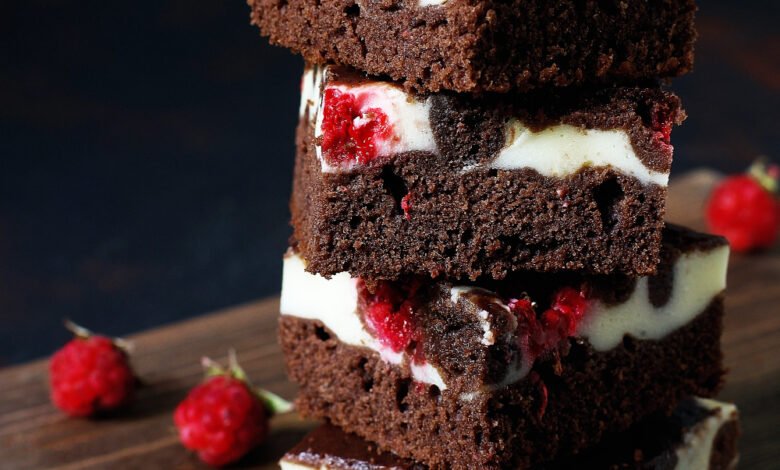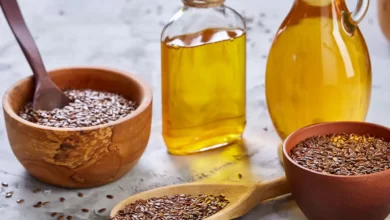
We have a particular spot in our souls for desserts because they make us grin and tantalize your taste buds. They’re more than just sweet treats; they have become an integral part of our heritage, customs, and society. But why do individuals find dessert facts so fascinating, as well as why do they hold onto them? Come along on a delicious adventure as we uncover the mysteries of the dessert kingdom and the explanations for why we can’t stop believing in it.
The coziness of custom
Sugary treats are frequently the pinnacle of custom and remembrance. Warmth and nostalgia are evoked by beloved kiddie delights, seasonal confections, and culinary traditions that have been handed down the centuries. The conviction in these delightful stories is strengthened when an individual tells a dessert truth or tale that speaks to our personal emotions.
Take the apple pie as an old-fashioned scenario. It is frequently cited as a representation of American values and culture. “As American as apple pie,” as a popular cliché goes, emphasizes the close relationship that exists between sweets and society. Tales and dessert facts that we come across that support these customs take on a deeper meaning and become ingrained in our sense of culture, rather than merely being charming tales.
The aroma of science
Dessert facts are largely believed because of our culinary receptors. A masterful confection is a complex balancing act of tastes, textures, and components. Since we personally know the enchantment of taste, we are prone to trusting claims that specific components or preparation methods improve a dessert’s flavor.
For instance, scientific evidence supports the idea that adding a dash of salt to chocolate improves its sweetness. Salt is a well-known tactic among confectioners because it can reduce harshness and highlight richness in chocolates. You’re more likely to believe this dessert fact to be true once you feel the distinction it creates.
Gastronomic mythos
Dessert facts are not exempt from the mythos around food. These myths and tales frequently center on the genesis of well-known desserts, substances kept under wraps, or the effects of well-known figures. It’s similar to mythology about desserts, because those tales give our preferred sweets a mysterious quality.
Consider the iconic Italian treat, mascarpone. It is supposed that it was made within Treviso town in the 1960s. According to legend, it was invented by the proprietor of a restaurant to serve as a dessert to cheer up tired patrons. Although contentious, this genesis narrative enhances the dessert’s appeal. When it gives an unambiguous understanding of its beginnings and intent, people trust it.
Societal Validation’s Impact
Dessert facts frequently become credible because of the influence of social reinforcement. Our opinions are influenced when loved ones, acquaintances, and even superstars discuss their sweet experiences and support a particular dessert. One of the most potent forces influencing our beliefs about dessert is the “If everyone loves that, it has to be real” syndrome.
For example, when an acclaimed chef extols the virtues of pure vanilla as a sweet treat, foodies are going to take notice and be convinced. Dessert facts gain credibility when they are endorsed by a trustworthy source, which also motivates individuals to include them in their gastronomic explorations.
Experimentation’s delight
The elementary thrill of trying new things represents one of the strongest arguments for why individuals subscribe to dessert facts. Sweet treats are a creative and innovative baker’s domain. They are excited to try the novel recipes and techniques we’re about to learn about because they have the potential to improve the dessert’s performance.
Take the recent trend of incorporating unusual ingredients into desserts—think sausage on chocolate or lilac in frozen yogurt, for example. These studies support the idea that dessert is a world of infinite opportunities while also deepening our comprehension of taste. We are motivated by the exhilaration of exploration and the prospect of mouthwatering discoveries, which is why we think these dessert facts are true.
The continuously shifting dessert sight
Desserts remain dynamic; they change alongside the seasons and fashions. As culinary professionals and cuisine fans keep pushing the limits of what’s conceivable in the realm of desserts, new dessert facts come to light. Our conviction in these dessert facts is strengthened by the desert world’s ongoing inventiveness.
International culinary fusion, for instance, has resulted in the creation of formerly uncommon dessert concoctions like green tea matcha cheesecake and chai-spiced crème brûlée. We welcome fresh information and methods that represent the shifting preferences and inclinations of the food industry as the confectionery scene develops.
The Joy of partaking in
Lastly, a big part of the reason we hold onto dessert facts is the thrill of spreading them. If it’s an interesting scientific discovery, a weird historic anecdote, or a novel method, we like imparting what we have learned about desserts. Disseminating dessert-related knowledge not only fosters community but additionally strengthens our conviction that desserts have a magical quality.
In summary, a variety of factors, including scientific evidence, culinary legends, social confirmation, testing, and the constantly shifting dessert terrain, influence our trust in dessert facts. These fascinating facts expand our understanding of desserts and introduce us to an array of culinary marvels; perhaps it’s a straightforward recipe for making brownies taste better or a complex backstory about the creation of a cherished dessert.



